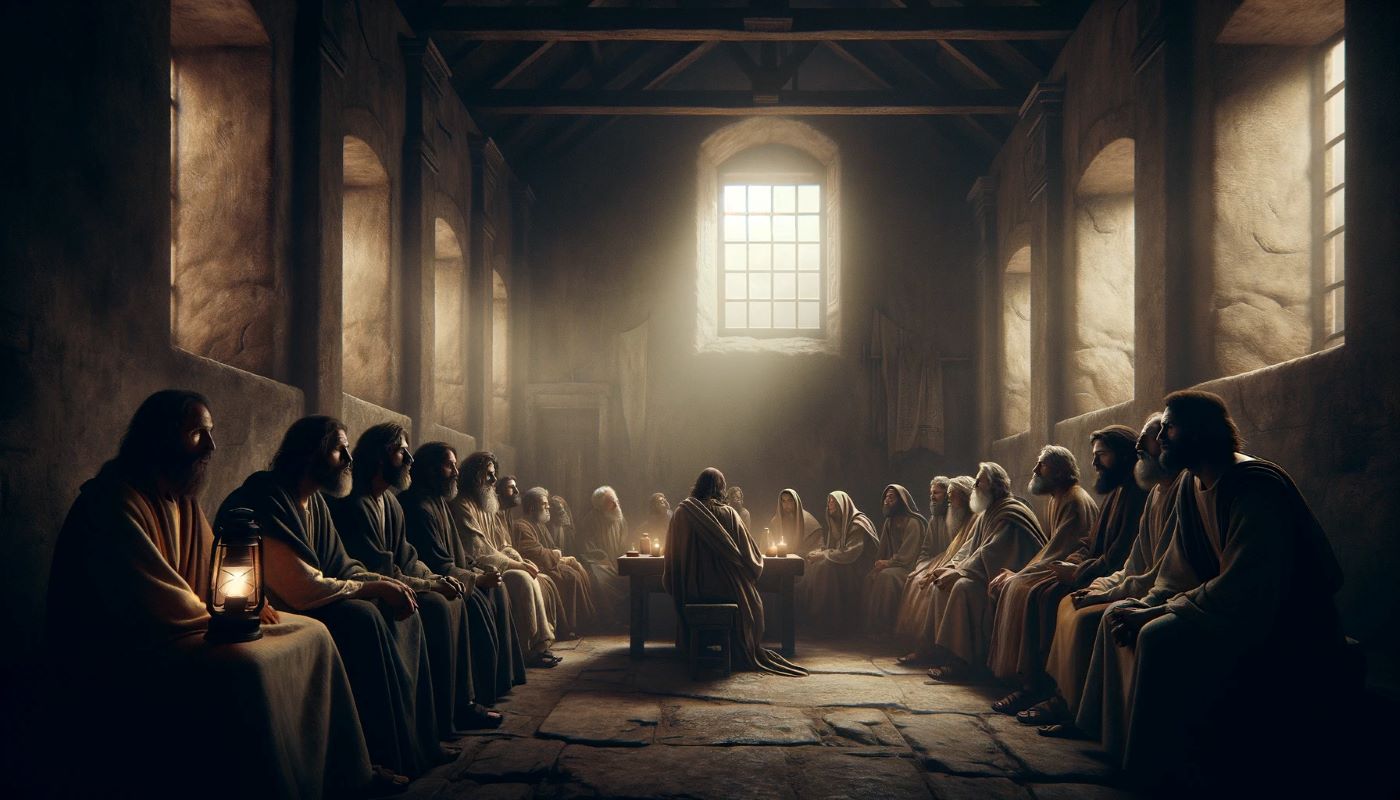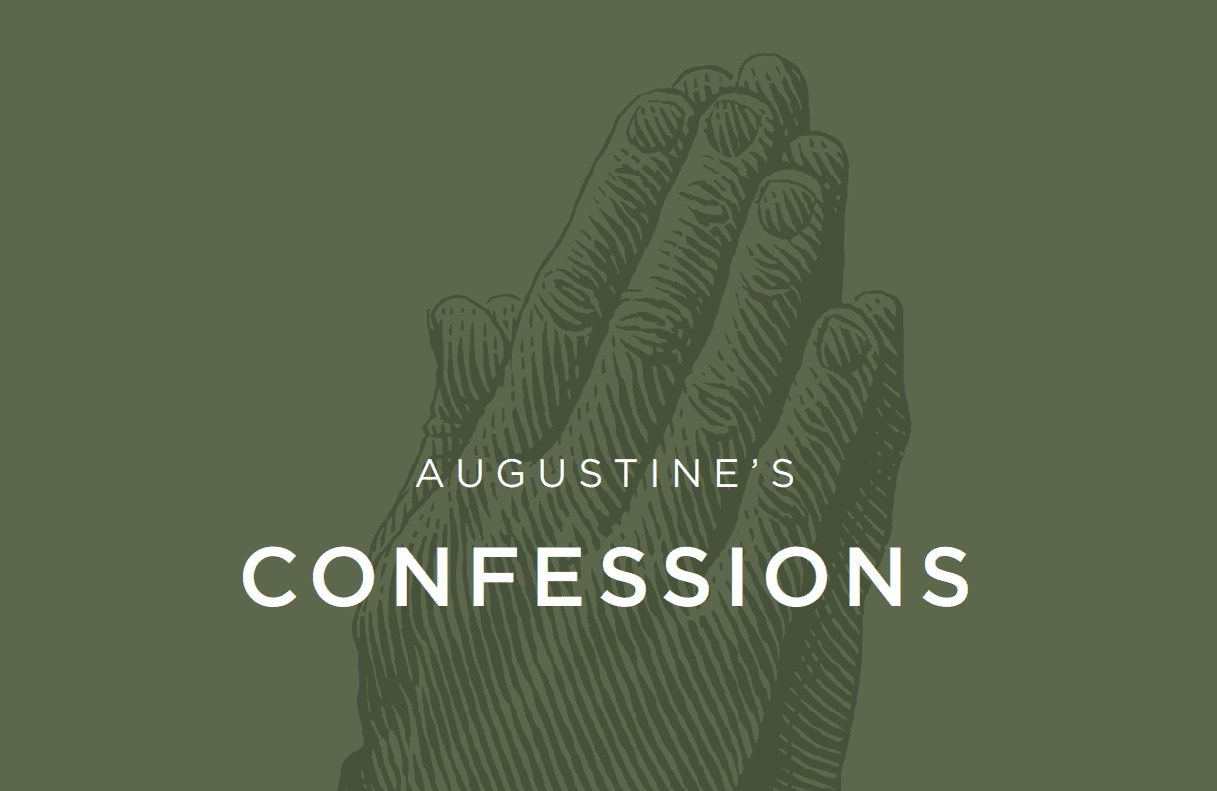Home>Christian Life>Which Psalm Records David’s Confession Of Sin?


Christian Life
Which Psalm Records David’s Confession Of Sin?
Published: March 4, 2024
Ericka Andersen, an editor at Christian.net, expertly merges digital strategy with content creation, focusing on faith and societal issues. Her communication skills enhance the platform's engaging narratives, fostering meaningful dialogue on belief's impact on society.
Discover the powerful confession of sin by David in this psalm and learn how it relates to the Christian life. Explore the significance and impact of this heartfelt expression of repentance.
(Many of the links in this article redirect to a specific reviewed product. Your purchase of these products through affiliate links helps to generate commission for Christian.net, at no extra cost. Learn more)
Table of Contents
Introduction
Which Psalm records David's confession of sin? This is a question that has intrigued scholars and believers for centuries. The confession of sin is a central theme in many religious traditions, and in the case of David, it holds particular significance. In this article, we will explore the Psalm 51 as the record of David's confession of sin. We will delve into the significance of this confession and its impact on biblical literature. Join us as we unravel the profound meaning behind David's confession and its enduring relevance in religious discourse.
Read more: Which Religion Practices Confession?
Understanding David's Confession of Sin
David's confession of sin is a poignant and deeply personal expression of remorse and repentance. In Psalm 51, David acknowledges his transgressions and seeks forgiveness from God. The Psalm is a heartfelt plea for mercy and cleansing, as David grapples with the weight of his wrongdoing. His words resonate with believers across generations, serving as a powerful reminder of the human capacity for both sin and redemption. David's confession is a testament to the universal experience of moral failing and the profound desire for spiritual renewal. It stands as a timeless example of humility and accountability, inspiring individuals to confront their own shortcomings and seek reconciliation with the divine.
- David’s confession in Psalm 51 reflects the depth of his remorse and the sincerity of his repentance. His words convey a profound sense of contrition, as he implores God to “blot out my transgressions” and “create in me a clean heart.” This raw and unguarded expression of guilt and longing for forgiveness resonates with believers who have grappled with their own moral failings.
- The Psalm also serves as a powerful example of the transformative power of confession. David’s willingness to confront his sins and seek reconciliation with God exemplifies the cathartic and healing nature of confession. His words remind believers of the restorative potential inherent in acknowledging wrongdoing and seeking divine mercy.
- Furthermore, David’s confession underscores the fundamental human need for spiritual renewal. His plea for God to “restore to me the joy of your salvation” reflects a deep yearning for inner restoration and a renewed sense of purpose. This aspect of the Psalm speaks to the universal human longing for redemption and the restoration of spiritual wholeness.
David's confession in Psalm 51 stands as a timeless testament to the complexities of human morality and the enduring hope for divine forgiveness and renewal. It continues to resonate with believers as a profound expression of contrition and a source of inspiration for those seeking reconciliation with the divine.
The Importance of Psalm 51
The significance of Psalm 51 lies in its profound exploration of human frailty, divine mercy, and the transformative power of repentance. This Psalm serves as a timeless reminder of the universal human experience of moral failing and the enduring hope for spiritual renewal. Its enduring relevance is evident in the way it continues to resonate with believers across diverse religious traditions. The themes of confession, forgiveness, and restoration articulated in Psalm 51 speak to the fundamental aspects of the human condition, transcending cultural and temporal boundaries. Moreover, the Psalm's inclusion in the biblical canon underscores its enduring importance as a source of spiritual guidance and inspiration for countless individuals seeking solace and redemption in the face of their own moral failings. As such, Psalm 51 stands as a testament to the enduring relevance of the human experience of sin and the timeless hope for divine mercy and restoration.
- The Psalm’s enduring relevance is evident in the way it continues to resonate with believers across diverse religious traditions. The themes of confession, forgiveness, and restoration articulated in Psalm 51 speak to the fundamental aspects of the human condition, transcending cultural and temporal boundaries.
- Moreover, the Psalm’s inclusion in the biblical canon underscores its enduring importance as a source of spiritual guidance and inspiration for countless individuals seeking solace and redemption in the face of their own moral failings.
- As such, Psalm 51 stands as a testament to the enduring relevance of the human experience of sin and the timeless hope for divine mercy and restoration.
The Impact of David's Confession on Biblical Literature
The impact of David's confession in Psalm 51 reverberates throughout biblical literature, shaping the way sin, repentance, and divine mercy are portrayed and understood. David's candid expression of remorse and his plea for forgiveness set a profound precedent for the portrayal of human fallibility and the potential for spiritual renewal in the biblical narrative. The Psalm serves as a touchstone for subsequent biblical authors, influencing the portrayal of characters and their moral struggles. Moreover, David's confession in Psalm 51 contributes to the broader theological framework of sin and redemption within the biblical canon, informing the way these themes are developed and articulated in subsequent texts. The impact of David's confession extends beyond the narrative of his own life, permeating the broader landscape of biblical literature and shaping the portrayal of human frailty, divine forgiveness, and the enduring hope for spiritual restoration.
-
David's confession in Psalm 51 sets a profound precedent for the portrayal of human fallibility and the potential for spiritual renewal in the biblical narrative. The raw and unguarded nature of David's plea for forgiveness establishes a powerful template for the portrayal of moral struggles and the transformative power of repentance in biblical literature.
-
The Psalm serves as a touchstone for subsequent biblical authors, influencing the portrayal of characters and their moral struggles. The themes of confession, forgiveness, and restoration articulated in Psalm 51 resonate throughout the biblical narrative, shaping the way characters confront their own failings and seek reconciliation with the divine.
-
Moreover, David's confession in Psalm 51 contributes to the broader theological framework of sin and redemption within the biblical canon, informing the way these themes are developed and articulated in subsequent texts. The Psalm's enduring impact is evident in the way it shapes the portrayal of sin, repentance, and divine mercy in diverse literary genres and historical contexts within the biblical canon.
-
The impact of David's confession extends beyond the narrative of his own life, permeating the broader landscape of biblical literature and shaping the portrayal of human frailty, divine forgiveness, and the enduring hope for spiritual restoration. The enduring relevance of Psalm 51 underscores its profound impact on the portrayal of moral struggles and the enduring hope for divine mercy and renewal in biblical literature.
In summary, David's confession in Psalm 51 leaves an indelible mark on biblical literature, shaping the portrayal of sin, repentance, and divine mercy in profound and enduring ways. Its impact reverberates throughout the biblical narrative, informing the portrayal of characters and their moral struggles, and contributing to the broader theological framework of sin and redemption within the biblical canon.
Conclusion
In conclusion, Psalm 51 stands as the record of David's confession of sin, offering a poignant and timeless expression of remorse, repentance, and the enduring hope for divine mercy and restoration. The Psalm's enduring relevance is evident in its profound exploration of human frailty, the transformative power of confession, and the universal longing for spiritual renewal. Moreover, David's confession in Psalm 51 leaves an indelible mark on biblical literature, shaping the portrayal of sin, repentance, and divine mercy in profound and enduring ways. Its impact reverberates throughout the biblical narrative, informing the portrayal of characters and their moral struggles, and contributing to the broader theological framework of sin and redemption within the biblical canon. As such, Psalm 51 stands as a testament to the enduring relevance of the human experience of sin and the timeless hope for divine mercy and restoration, resonating with believers across diverse religious traditions and serving as a source of inspiration and guidance for countless individuals seeking solace and redemption in the face of their own moral failings.















